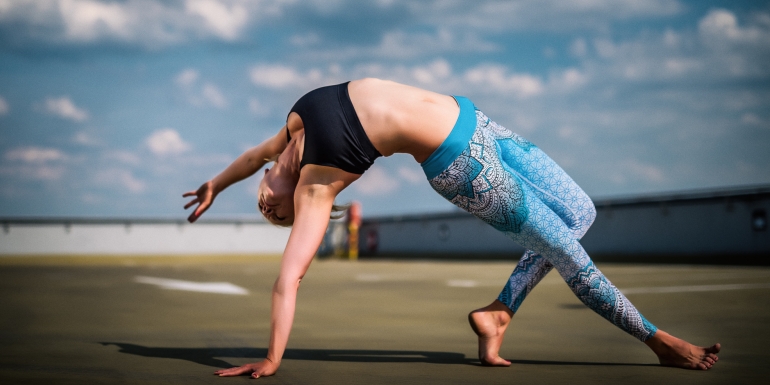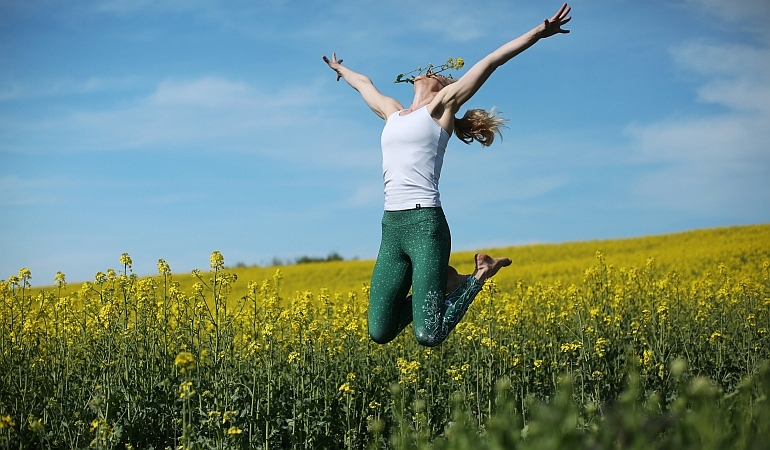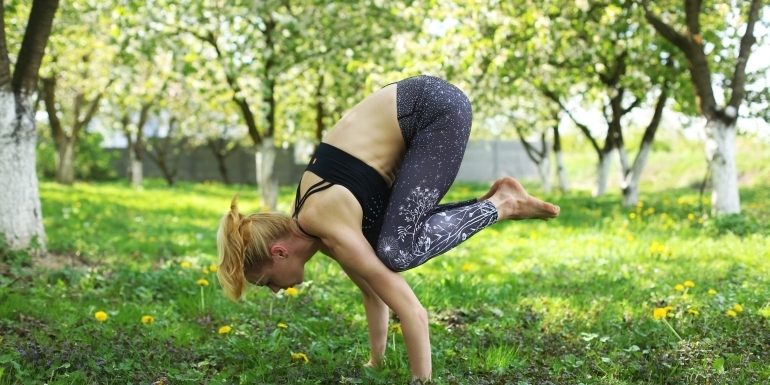If you have had the opportunity to read our previous post, you already know Ewa. If not, now you have the opportunity to meet her. Ewa magically combines three roles: she is a mother, she teaches yoga in several schools in Wrocław, and as a sports psychologist she supports football players both substantially and emotionally. I had the opportunity to talk to Ewa on a sunny May afternoon.
What is the relationship between psychology and sport?
This is a very important question - attention should be paid to how we can use psychology in sport.... There is now such a unique fashion for mental training, there are remarks that the head makes a player a champion... I agree with this, from such a perspective, that this head should first of all be compatible with what the body does during training. We can work using our head, but if a player does not work over his body, over purely sporting possibilities, we have no right to cheat and enchant the player that he will do everything with using his head. The sports phenomenon lies in the power of the body. I agree that at some point there is already such a high level that someone measures themselves with their head. Then I always pay attention to the player's narrative, to the story: from where he goes, where he goes, what he comes across in his life, what inspirations and motivations he has, what drives him. And this is basically - I think - a question about logo therapy. It is always a question about the sense I see in my physical activity.
I have such a feeling - I often use yoga language at work with my athletes - that the discipline is practised, the discipline cannot be trained. Of course it is possible to train something, but I think that a professional has no right to train, he has a duty to practise. Someone who deals with sports occasionally may train, but not someone for whom the sports is his life. Because the way I sleep, the way I eat, the way I feel, the way I build relationships with others, the extent to which I am good to myself... that also matters. It is a practice, and if not a practice, it is as important as five minutes in the support. What matters is how the athlete perceives himself. Both in the sports space and in the life space. I am not saying that he is to be an athlete all his life (because this is also a bit of a misguided heuristics of thinking about a man), because he can run a pub with healthy food, he can train himself and also design leggings for women. It's not about whether he does the same thing or not, it's about him seeing the sense in it, seeing the whole thing and seeing a good relationship with himself. I think that this is the most important thing regarding this relationship between psychology and sport, and the idea of looking for something new in sport.
What I introduce to sport as a sports psychologist is a confrontation with an old attitude: a psychologist comes in, throws tests to the athletes and something is supposed to come out of these tests. This usually results in nothing if we talk about the team. Because we in the team are supposed to build love, we in the team are supposed to build relationships, we in the team are supposed to build common goals, and this, indeed, is best built by integration, cooperation and touch. This is something which is increasingly often being discussed: working with the body, working with care, working with how much I am for you, how much you are for me, how much space we can actually build for ourselves.
Perfectionism or love? What really matters in sport?
In the clinical psychology, perfectionism is very often pathological. One talks about good and bad perfectionism, but... when the athletes read the characteristics of good perfectionism they start laughing and say: "but where is the perfectionism here?". There are some pathologies that are simply functional in sport and the perfectionism is partly a functional pathology of the athletes. It can have a good influence. And also very disastrous, not so much on the athlete himself as on the rest of the team.

I often refer in my work to research, I refer to psychological theories, but I refer primarily to what the champions say, what my athletes say. One of the European champions said nicely, "Ewa, if I do something wrong now, if I make mistakes ... In fact, my score, my time, my place on the podium, always depends on how many mistakes I make and how many mistakes my opponent has made". The number of mistakes often determines our sports quality. I have a duty to be with the athlete's narration, with his dreams, desires, with his body, which is everything, and indeed with the greatest respect to the sporting assumptions, and to find the way of psychology in them.
There are many psychologists, including in sport, but it is good as if these psychologists were actually in sport before, and not just in psychology. For an athlete you have to be an empathic psychologist, for an athlete it is also important that the psychologist with whom he works knows what it means to vomit after training, the psychologist knows what it means to get tired, the psychologist knows what it means to compete, the psychologist knows what it means to be under pressure or sponsors. And he knows what the age is! The Olympic Games are held every 4 years. There are no negotiations. If I do not manage to do it now, I have another chance in four years' time. In four years' time, in many disciplines, I may be so old that this chance is no longer there. There are also different disciplines - I work with football players - and for us, it is a matter of what kind of ball we dream of, what kind of ball we aim for. You will certainly guess that the Polish, Spanish or German league - they are somewhat different. And this is also a question for the player: where will I be? What kind of ballerina will I really be? What kind of dancer of my own work I am here and now?
What is the most important in physical activity?
I think it is love. Just love. Both to ourselves and to... to life, to the time that has been given to us. I would always talk about love, but such an honest love, such an authentic love, such as we feel, and not such a pretended love that I have to do something, that I should do something. Although one can hear that love in sport means nothing, I think training is what matters. It is not possible to be a professional and train, to endure all these difficulties because you do not like it, you have to love it. It is simply as that.

What do people forget about when they practise sport? They often forget to make it a pleasure. The point is that it is not an obligation and, secondly, that it is not a tool for building one's image. I feel that there is nothing worse than making sport such a tool. Some time ago, I think Agasi or one of the tennis players said that if he had known a better way of making money, he would probably have done it, but this one was the best. I am aware of this. However, only when we have respect for physical activity do we feel that this is our passion, that we can play with it, and this also gives us power.







Leave a Reply Cancel Reply